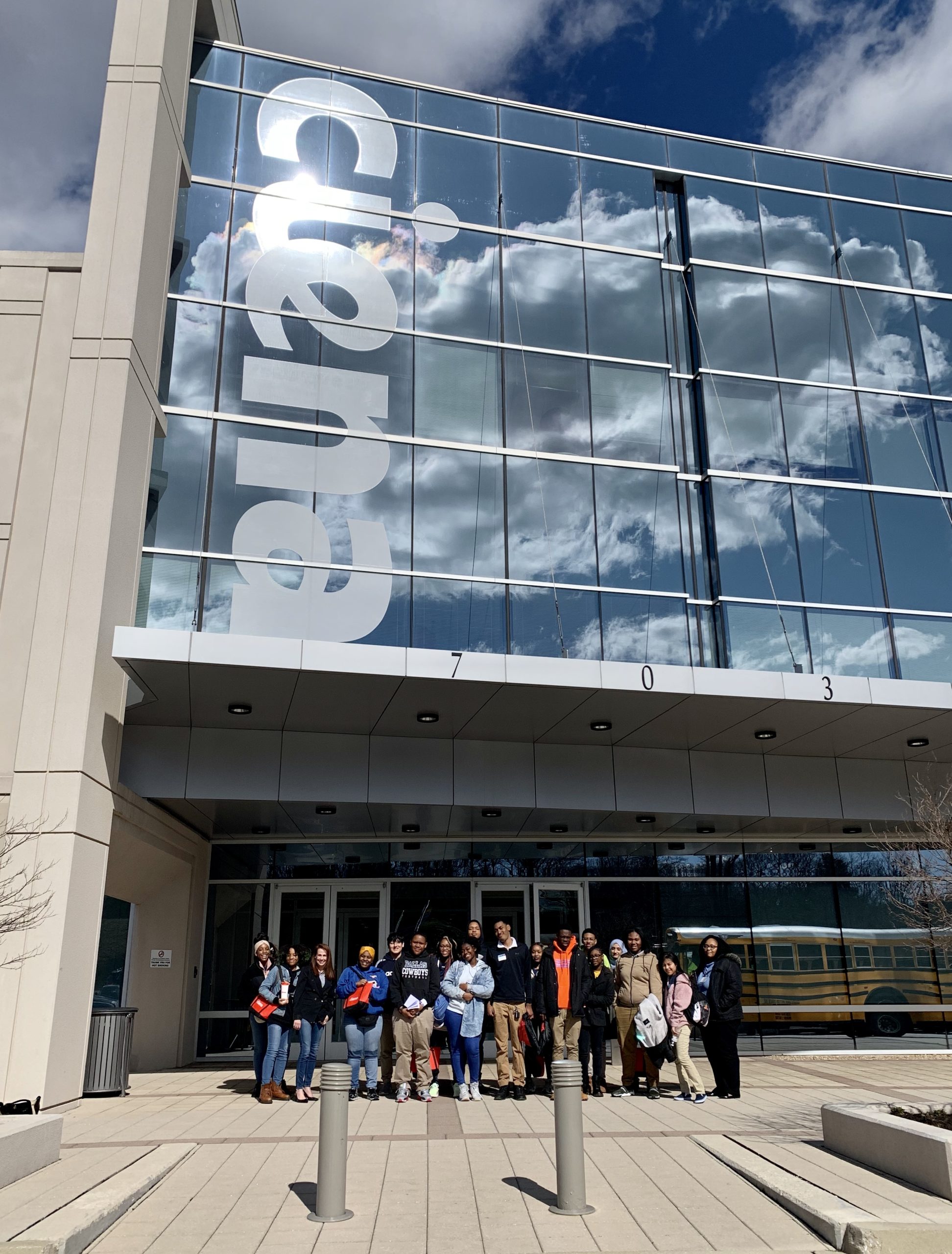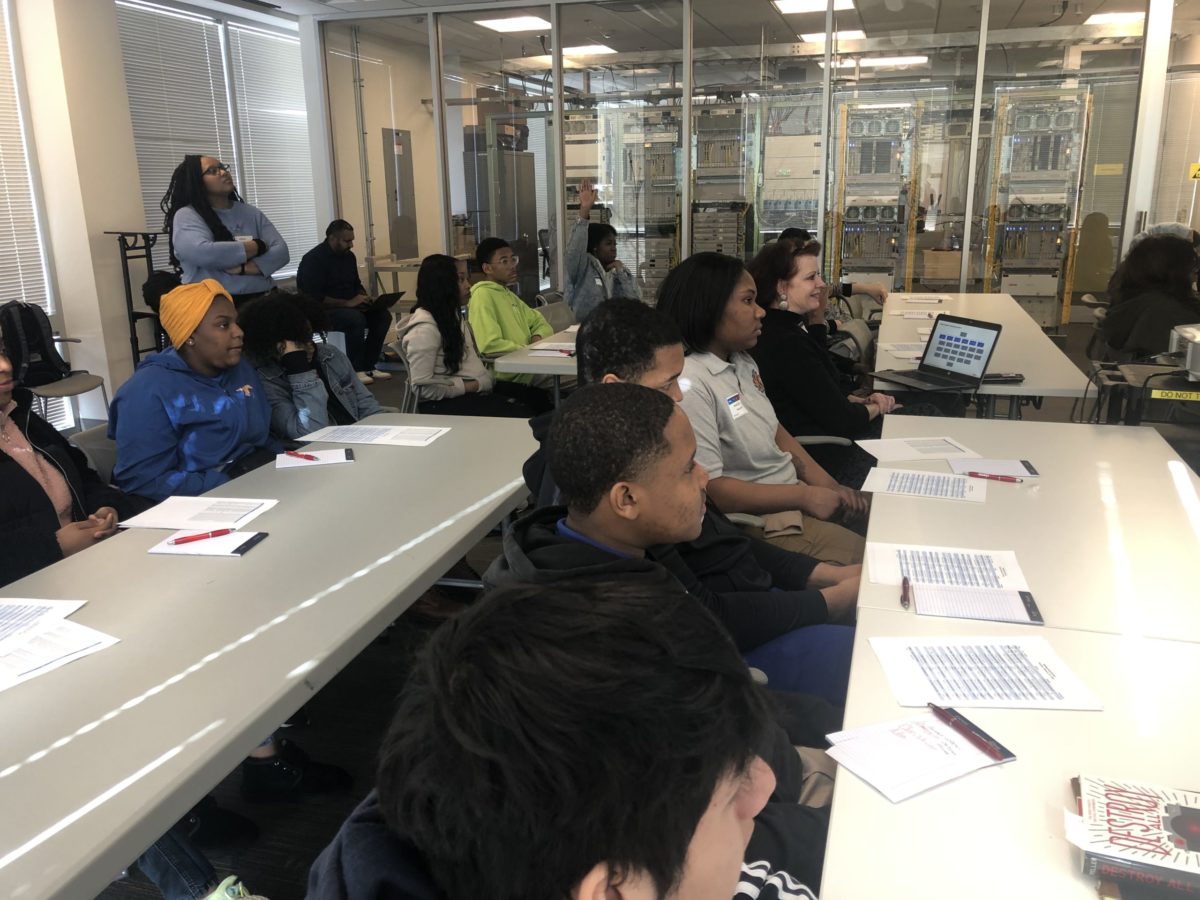Baltimore City high school students who took part in programming with local nonprofit Building STEPS got introduced to science and tech careers as they prepared for college. Thanks to a locally headquartered company, they also have technology to take with them as they head to get their degrees.
Blue Planet, a software automation-focused division of Hanover-based networking systems, services and software company Ciena, made a donation of 55 tech packages to Building STEPS students. Each included one laptop, one year of online academic support from Chegg and $100 in school supplies.
The donation was a culmination of programming and support offered to the students by the company, which is based in the Baltimore area and has employees around the world.
With a 26-year-old program that’s free to students and free to schools, Building STEPS works with 15 particularly challenged Baltimore City high schools to engage high-achieving students in programming that begins their junior year. This includes monthly field trips to local companies from September through May, allowing students to explore science and tech careers. Over the summer months, rising seniors can participate in paid internship programming offered through the City’s YouthWorks program. This includes academic enrichment such as essay and math work. It also involves professional development and career exploration, with a different company visiting each week.
Team members from Ciena and Blue Planet were a part of both of those phases. Students visited their Hanover offices in March 2020, just before the pandemic transitioned everything to remote. In July, more than a dozen Blue Planet employees worked remotely with students.
It’s not the only such local partnership. This summer, they’ve also welcomed virtual teams from Northrop Grumman, which has a large operation near BWI; UMBC’s Center for Women in Technology; and Inner Harbor-based engineering firm JMT.
According to Building STEPS CEO Debra Hettleman, such partnerships with the business and tech community are key for the nonprofit, which has a staff of six people.
“We’ve got 200 high schoolers in programming at any given time,” Hettleman told Technical.ly. “We have to have partnerships or we don’t work.”

A virtual session with the Ciena/Blue Planet team. (Courtesy image)
Originally started in 1995 as a D.C.-based internship program by The Weinberg Group CEO Matthew Weinberg, five years later it relocated to Baltimore.
Hettleman said the programming is designed to provide students exposure to science and technology careers, and help to navigate the transition to college. That way, they can get a feel for career opportunities, and whether STEM might fit into their plans for a major.
Following the internship over the summer, senior year programming focuses on college matching and placement. It means completing applications — including the all-important college essay — as well as navigating financial aid opportunities.
With the tech package, students who are now heading off to college will be able to have access to computing devices that they need to plug in and get work done, as well as have money to get their dorm room setups up and running via the supply donation.
The relationship with Building STEPS won’t end there, Hettleman said, as they maintain relationships with students once they are in college. Hettleman said many are the first in their family to attend college, so they seek to be proactive with the students as they navigate a new phase of life. Based on Building STEPS’ own data, 80% of their students go on to earn a college degree, and two-thirds graduate with STEM or healthcare degrees. An active alumni group keeps the connection going when they enter the working world, as well. In all, about 250 college students and alumni are active year, in addition to those in the high school program.

Building STEPS students at Ciena’s Hanover HQ. (Courtesy photo)
So why the science and tech focus? In short, it’s a pathway — both to interesting work that helps build and maintain the many systems that run the world, as well as a stable salary and quality of life.
“In general, a STEM career is a lot of hard work but it can provide the lifestyle a student may want,” Hettleman said. The program seeks to be a solution to a bigger societal challenge: “How do we help underrepresented students go into a field that has not been accessible to them, but now it is?”
It means the CEO is on a mission to spread the word about the program to students, and grow its capacity.
“I believe we should be serving every student who is eligible and fills out an application,” she said. She wants students to be thinking: “When I’m in 10th grade, I want to apply to Building STEPS.”
Before you go...
Please consider supporting Technical.ly to keep our independent journalism strong. Unlike most business-focused media outlets, we don’t have a paywall. Instead, we count on your personal and organizational support.
Join our growing Slack community
Join 5,000 tech professionals and entrepreneurs in our community Slack today!

Entrepreneurship is changing, and so is the economic development behind it

Tech Hubs’ new $210M funding leaves Baltimore and Philly off the table

Here’s what to know before using AI to craft your brand’s social media posts


